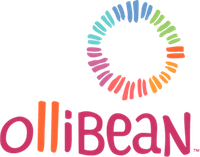By Judy Endow
For many years having friends eluded me. I find that to be true with many teen and young adult autistics. If you are in that predicament I encourage you to hang in there because it does get better over time.
One of the hardest things we have going against us as autistics is that it is generally non-autistics who try to help us to have friends. The only way they know how to help is to try to get us to make friendships work in the way they make them work based on the way their neuromajority thinking and interfacing with others and with the world work for them. Many times this is a big enough mismatch for autistics as not to work in our lives. When this happens we often blame ourselves. Here is something I came to understand in my 40’s. I share it in hopes it will be helpful to others.
Words, the Currency of Time
(Directions for How to Spend Non-Cents Dollars)“Spend your Time wisely,” is a saying I’ve heard.
The currency of this Time,
I’ve learned,
is to use One’s words.If One uses words galore,
One might captivate Another…
…most times a bittersweet victory to gain a Time-limited captive
who hears the words that bury my soulas I spend this currency of Time –
however unwisely –offering dollars devoid of cents
the gold of my soul remaining unspent.(Endow, 2009a, p172)
Something that took me many years to learn was that once I accepted myself for the autistic woman I am in life and stopped doing all the things people had tried to teach me in regards to making friends I noticed I did have friends! It was ironic that when I hit a place in my life where I didn’t care so much about making friends that I had them! In fact, many days it seems that I have more people than I can interact with on a-day to-day basis.

The meaningfulness of life for me, an autistic, is in the reciprocal relationships of my everyday life where each of us come as we are without pretense, participating comfortably in our own way. Judy Endow on Ollibean
Today in my life, many people who imagine themselves to be my friend are very kind and giving people and like to be known for being helpful to me, an autistic person, but they do not ever make the space for me to be their friend back. Thus, it is not a true friendship because they do not find me to be necessary to the core of their being.
One thing all my very close friends have in common is that, besides having time for me, they allow me to be their friend. My closest friends and I have reciprocal relationships. Both of us find the other necessary in our lives in a way that is not demanding. I find these friends necessary, because when I am with them I can be my very best – the person I was created to be.
My friends report similar feelings to mine. One says that I bring out the best in her. Another tells me she thinks most creatively when we are together. With close friends, we know each other’s faults and flaws and can love each other through them. This means that our faults and flaws don’t become each other’s pet peeves. We each are limited and imperfect and are O.K. with that in ourselves and in each other.
That is how it is with my closest friends. We find each other necessary and care deeply for one other. When I’m allowed to show my caring however I want, I am able to freely spend the gold of my soul, often with abandon, on my friends. I love it and would not live my life any differently. The meaningfulness of life for me, an autistic, is in the reciprocal relationships of my everyday life where each of us come as we are without pretense, participating comfortably in our own way.
So, all in all, when it comes to the truly important stuff of life, I am more like you than autism can ever make me different. It is simply that I am human, needing and engaging in human connection in a way that makes sense to each participant, along the way becoming friends, walking our paths through life together.

It is simply that I am human, needing and engaging in human connection in a way that makes sense to each participant, along the way becoming friends, walking our paths through life together. Judy Endow on Ollibean
BOOKS AND DVD BY JUDY ENDOW
Endow, J. (2012). Learning the Hidden Curriculum: The Odyssey of One Autistic Adult. Shawnee Mission, KS: AAPC Publishing.
Endow, J. (2006). Making Lemonade: Hints for Autism’s Helpers. Cambridge, WI: CBR Press.
Endow, J. (2013). Painted Words: Aspects of Autism Translated. Cambridge, WI: CBR Press.
Endow, J. (2009). Paper Words: Discovering and Living With My Autism. Shawnee Mission, KS: AAPC Publishing.
Endow, J. (2009). The Power of Words: How we think about people with autism spectrum disorders matters! Shawnee Mission, KS: AAPC Publishing.
Endow, J. (2009). Outsmarting Explosive Behavior: A Visual System of Support and Intervention for Individuals With Autism Spectrum Disorders. Shawnee Mission, KS: AAPC Publishing.
Endow, J. (2010). Practical Solutions for Stabilizing Students With Classic Autism to Be Ready to Learn: Getting to Go. Shawnee Mission, KS: AAPC Publishing.
Myles, B. S., Endow, J., & Mayfield, M. (2013). The Hidden Curriculum of Getting and Keeping a Job: Navigating the Social Landscape of Employment. Shawnee Mission, KS: AAPC Publishing.










Leave A Comment